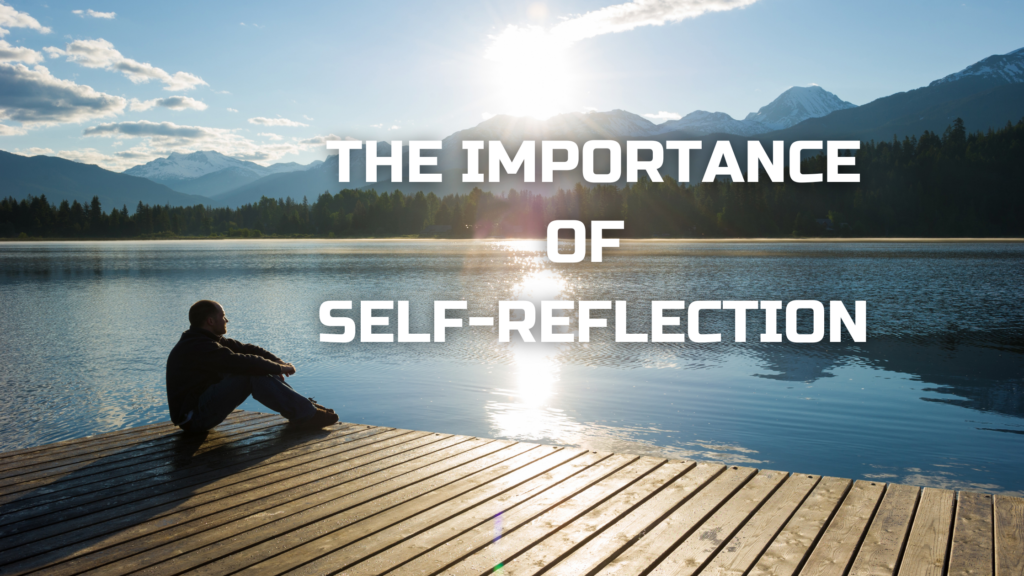
If you’re feeling stuck or unsure if you’re on the right path, self-reflection can help you gain clarity and align your actions with your aspirations.
If you’re new to self-reflection or need guidance, this blog is for you. Keep reading to learn the basics, benefits, and tips for effective self-reflection.
What is self-reflection?
The Cambridge Dictionary defines it as “the activity of thinking about your own feelings and behavior, and the reasons they may lie behind them.”
Self-reflection is something we all do naturally, at a subconscious level, and it can be done with purpose.
If you’re an athlete, you’ve probably already done some sort of self-reflection, except you didn’t label it.
Think about it. What do you do after a game?
Odds are you run through the game’s key moments (good and bad) in your head.
Then, you sit down and watch the film to further assess your performance.
In those moments, you analyze what went well and where you can improve.
Those practices are a form of self-reflection.
How does self-reflection impact you?
Self-reflection is essential for athletes and professionals because it invites you to look inward and ask yourself questions to better understand your emotions, strengths, weaknesses, and the driving factors of a situation.
Some benefits include:
Improved Self-Awareness
We all have unique strengths, weaknesses, beliefs, and motivations.
But sometimes, we overlook these aspects of ourselves. Self-reflection brings these habits (positive and negative) to light and creates a clearer picture of our thought patterns and responses.
With more awareness of how we operate internally, we can make more informed decisions that align with the best version of ourselves.
Goal Setting & Alignment
Regular self-reflection helps you stay aligned and focused on your long-term goals.
When you take stock of your progress, you can celebrate your achievements and identify areas of improvement. Staying in tune with yourself and keeping your goals focused helps you stay motivated.
Catalyst of Change
We don’t learn from experiences. We learn from reflecting on those experiences.
Self-reflection helps you move from just experiencing things to understanding what happened.
Self-Reflection Questions
If you’re new to self-reflection, here are some starter questions:
- Did I give my best effort?
- What patterns am I noticing in my thoughts and behaviors?
- What are my strengths?
- Where can I improve?
- What improvements have I made, and what should I do now?
- Am I developing a growth mindset? Or am I letting negativity overpower my positivity?
Self-reflection isn’t always easy, but it’s worth it. These tips will help feel more comfortable:
- Start small. If you’re new to it, start with small, manageable sessions. Even five minutes a day can make a difference in your life.
- Be consistent. Like any habit, reflection requires consistency. You have to commit to this practice, whether you want to or not. As John C. Maxwell said, “consistency compounds.”
- Stay focused. Sitting down and thinking about your life in its entirety can be overwhelming. Instead, think about one specific experience at a time. For example, you can think about something that happened during a game or at work.
Time spent in self-reflection is never wasted; it’s an intimate date with yourself!
Before you go, remember this,
“Real transformation requires real honesty. If you want to move forward, get real with yourself!”


